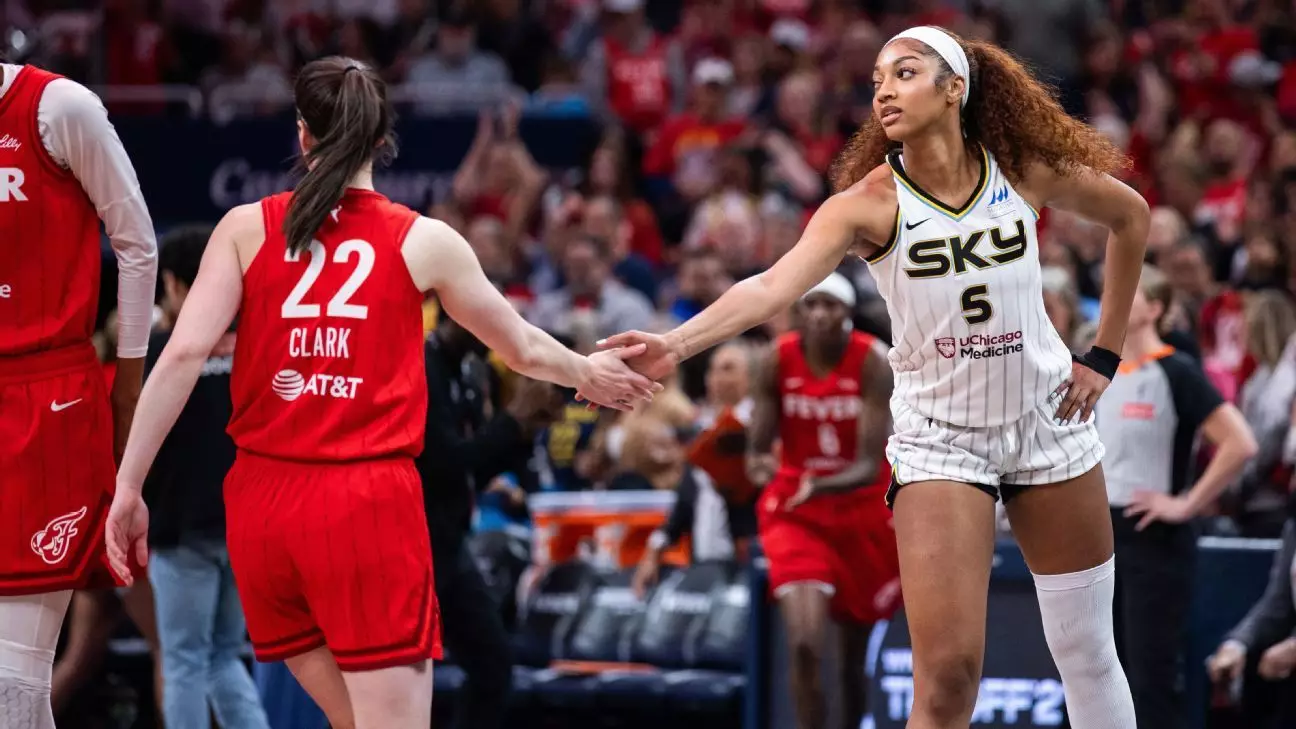The recent incident during the WNBA season opener between the Indiana Fever and the Chicago Sky has brought to light a crucial dialogue about the limits of what is deemed acceptable conduct among fans. Allegations of “hateful fan comments” directed at Chicago Sky player Angel Reese highlight a troubling aspect of sports culture that, unfortunately, fails to stay within the bounds of respectful competition. While the Fever players didn’t hear such comments firsthand, their responses demonstrate an awareness and commitment to creating an inclusive environment—a sentiment echoed throughout the league. As Caitlin Clark emphasized, there is no room for negativity or hate in the world of sports.
The incident began when a foul committed by Clark led to a confrontation on the court. Though some fans might argue that competitive sports can provoke heated emotions, their enthusiasm should never devolve into hostility or vitriol. The expectation must be clear: passionate support should celebrate players rather than degrade them.
Judging From the Aftermath: The Players Stand United
The aftermath of the game featured players such as Aliyah Boston acknowledging the incident and insisting on the importance of decorum—both from fans and among players themselves. When Boston expressed her astonishment at receiving a technical foul for merely diffusing a confrontation, it was a reminder of how crucial it is for athletes to model restraint and respect. While the heat of the game can ignite tensions, it is vital to create a playground for sportsmanship, one where emotions run high without crossing the line into disrespect.
The tension highlighted by the incident illustrates a larger societal issue that reaches beyond the four walls of an arena. Fans often forget that they are not just spectators—they are part of a community that thrives on mutual respect. When Boston called for fans to consider their daughters’ experiences in the arena, it resonated with a profound truth: all fans should act as if every player is family. It cultivates an atmosphere of respect that elevates the game rather than diminishes it.
A League’s Responsibility: Enforcing Zero Tolerance
DeWanna Bonner, a seasoned player making her debut season with the Fever, amplified these sentiments by reiterating a collective commitment among players to speak out against toxic behavior. The Fever organization’s leadership must be commended for fostering this proactive environment. By putting forth a “zero tolerance” policy, the Fever reinforce the idea that the integrity of basketball—and the safety of players—is paramount.
Sports, at their core, are a celebration of human spirit, determination, and teamwork. However, this celebration can be undermined by a small yet vocal minority whose comments can cast a shadow over the collective joy of the event. The WNBA’s decision to investigate the situation is a necessary step toward upholding these values, but it also reveals a need for lasting change within the culture of sports fandom.
The Role of Social Media and Our Collective Responsibility
Compounding the issue is the pervasive nature of social media, where anonymity can embolden those who propagate negativity without consequence. Comments and posts that spread toxicity can contribute to real-world repercussions that athletes must face. This interconnectedness means that we—fans, players, and organizations alike—must work together to promote a healthy and respectful environment.
Athletes, as public figures and role models, have the agency to influence their communities positively. Social media can be a powerful tool for demonstrating what inclusive support looks like. The more players like Clark, Boston, and Bonner champion respect among fans, the more likely it becomes that we will see a shift in what is acceptable behavior in the stands.
In this light, supporting players does not mean descending into partisanship fueled by insults; it means cheering for their talent while upholding their dignity. The league and its affiliated organizations bear a responsibility to ensure that their arenas reflect their essential values.
The Fever’s upcoming game against the Atlanta Dream presents an opportunity—not just for the team but for fans as well—to reaffirm these ideals in the spirit of camaraderie and respect. When every individual takes accountability for their contributions, the collective experience can become a powerful force rooted in positivity.


Leave a Reply